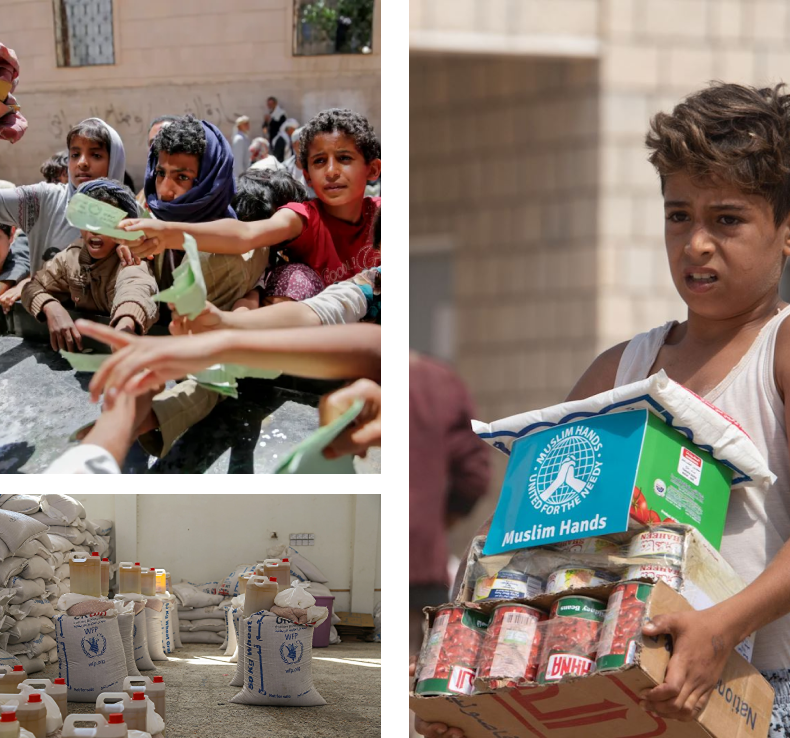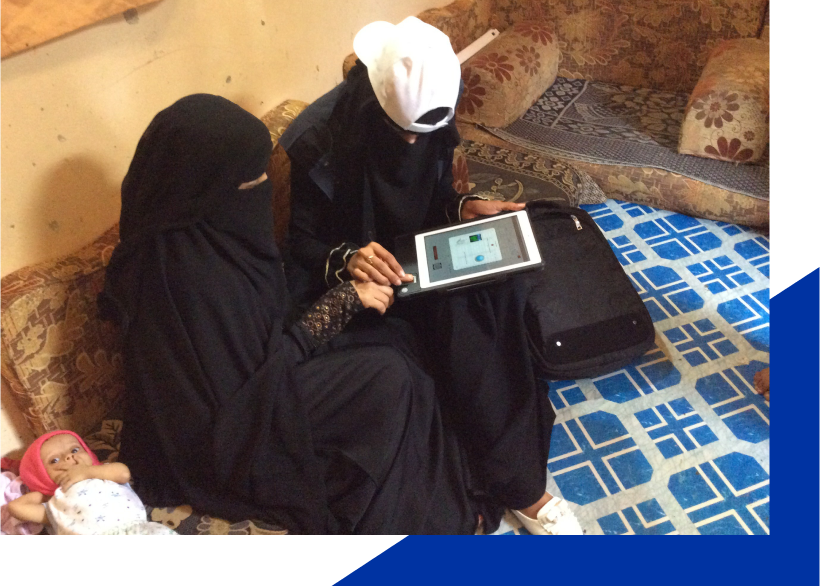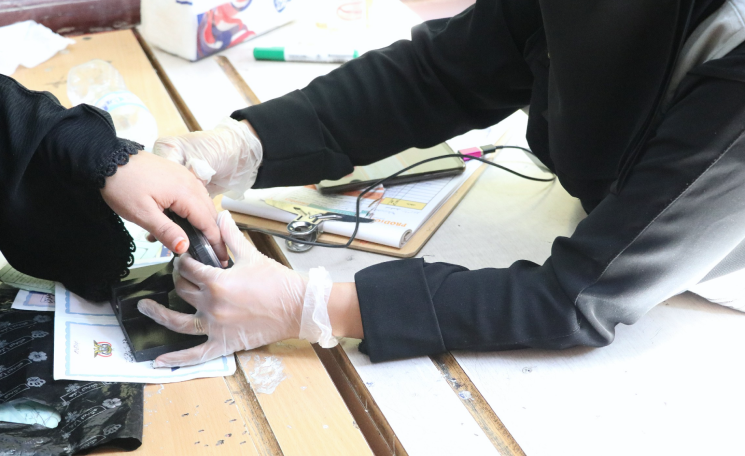Prodigy Systems specializes in designing and implementing Monitoring & Evaluation (M&E) systems tailored to the specific needs of humanitarian and development projects. Through this service, Prodigy provides clients with the tools and methodologies needed to assess project progress, measure outcomes, and ensure that interventions align with intended goals.


Prodigy Systems’ community-based interventions aim to understand the broader social, economic, and environmental needs of communities. Prodigy takes a participatory approach, engaging local leaders, organizations, and beneficiaries to ensure that the assessments reflect the community’s actual needs. This holistic methodology helps identify gaps and challenges faced by entire communities, such as lack of access to essential services, economic instability, or social vulnerability. A key example of this approach was demonstrated during the Market Rapid Assessment for WFP Yemen in 2016. Prodigy assessed the availability of essential goods and services in Yemen’s markets amidst ongoing conflict. By employing mobile data collection, Prodigy ensured real-time insights into market conditions, allowing for timely adjustments in the distribution of humanitarian aid. The results informed critical decisions related to the supply chain, helping to ensure that humanitarian interventions reached the most vulnerable populations effectively.

For beneficiary-based interventions, Prodigy focuses on understanding the direct impact of interventions on individuals or specific groups, including vulnerable populations. Prodigy uses tailored approaches, such as in-depth interviews, surveys, and case studies, to measure the effects of interventions at the individual or household level. These assessments provide insights into how interventions improve access to services, well-being, and economic empowerment for the target beneficiaries.
In the Internally Displaced Persons (IDPs) Registration and Verification Survey for UNHCR and WFP in Yemen, Prodigy focused on verifying and updating the IDP database to ensure aid was reaching the most vulnerable. By utilizing mobile data collection and GPS technology, Prodigy gathered detailed information on IDP households, enabling more effective targeting of humanitarian assistance. The final database allowed for the identification of assistance gaps and facilitated better resource allocation.


Prodigy Systems’ Needs and Impact Assessment services are essential for understanding the effectiveness of community-based, site-based, and beneficiary-based interventions. By employing advanced technology, participatory engagement, and robust data collection methods, Prodigy ensures that its assessments are accurate, timely, and aligned with the needs of the target populations. Whether working with local communities, assessing the effectiveness of a specific site, or measuring the impact on individual beneficiaries, Prodigy’s expertise enables stakeholders to enhance the impact and sustainability of their interventions.

For site-based interventions, Prodigy Systems focuses on evaluating the effectiveness of interventions at specific locations such as health centers, schools, or water facilities. These assessments examine both the physical infrastructure and service delivery, ensuring that the site meets the needs of beneficiaries and operates efficiently. Prodigy conducts detailed site visits, gathers feedback from users, and assesses the usability of the resources provided.
In the Early Grade Reading Program (YEGR) Phase 1 in Yemen, Prodigy’s role was central in conducting a baseline study to evaluate the effectiveness of a new Arabic teaching program. The study involved assessing the initial reading levels of early-grade students across six governorates. By leveraging mobile data collection tools, Prodigy ensured that feedback was collected in real-time, enabling adjustments to the program based on emerging findings. This assessment formed the foundation for measuring the program's progress and effectiveness over time.

Prodigy Systems’ community-based interventions aim to understand the broader social, economic, and environmental needs of communities. Prodigy takes a participatory approach, engaging local leaders, organizations, and beneficiaries to ensure that the assessments reflect the community’s actual needs. This holistic methodology helps identify gaps and challenges faced by entire communities, such as lack of access to essential services, economic instability, or social vulnerability. A key example of this approach was demonstrated during the Market Rapid Assessment for WFP Yemen in 2016. Prodigy assessed the availability of essential goods and services in Yemen’s markets amidst ongoing conflict. By employing mobile data collection, Prodigy ensured real-time insights into market conditions, allowing for timely adjustments in the distribution of humanitarian aid. The results informed critical decisions related to the supply chain, helping to ensure that humanitarian interventions reached the most vulnerable populations effectively.

For beneficiary-based interventions, Prodigy focuses on understanding the direct impact of
interventions on individuals or specific groups, including vulnerable populations. Prodigy
uses tailored approaches, such as in-depth interviews, surveys, and case studies, to measure
the effects of interventions at the individual or household level. These assessments provide
insights into how interventions improve access to services, well-being, and economic empowerment
for the target beneficiaries.
In the Internally Displaced Persons (IDPs) Registration and Verification Survey for UNHCR and WFP
in Yemen, Prodigy focused on verifying and updating the IDP database to ensure aid was reaching
the most vulnerable. By utilizing mobile data collection and GPS technology, Prodigy gathered
detailed information on IDP households, enabling more effective targeting of humanitarian assistance.
The final database allowed for the identification of assistance gaps and facilitated better
resource allocation.

Prodigy Systems’ Needs and Impact Assessment services are essential for understanding the effectiveness of community-based, site-based, and beneficiary-based interventions. By employing advanced technology, participatory engagement, and robust data collection methods, Prodigy ensures that its assessments are accurate, timely, and aligned with the needs of the target populations. Whether working with local communities, assessing the effectiveness of a specific site, or measuring the impact on individual beneficiaries, Prodigy’s expertise enables stakeholders to enhance the impact and sustainability of their interventions.